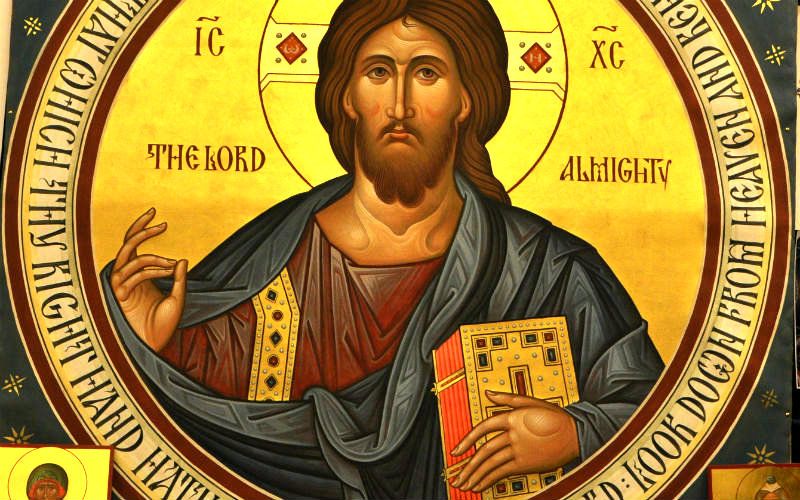The Bible is absolutely central to Catholicism – so then why are there so many myths surrounding it?
Here are 5 of the most common myths about the Bible and the Catholic Church:
Myth 1: Catholics don’t think the Bible is authoritative
Truth: Usually, the way this goes is that Protestants claim that Catholics put Tradition or the Magisterium over the Bible. This is simply false.
Catholics believe that the Bible is the inspired Word of God and is the highest authority in all that it teaches. Authentic Tradition, also the authoritative Word of God (2 Thessalonians 2.15), can’t contradict the Bible; neither does the Magisterium have the authority to alter or supersede Scripture.
Rather, Catholics believe the Church “is not above the word of God, but serves it, teaching only what has been handed on, listening to it devoutly, guarding it scrupulously and explaining it faithfully in accord with a divine commission and with the help of the Holy Spirit…” (Dei Verbum, 10)
Myth 2: Catholics added books to the Bible
Truth: It’s ironic that this charge is usually leveled by Protestants, when in fact the opposite is the case: Catholics use the traditional full Bible and Protestants have fewer books because they removed them from the Bible.
The history of the biblical canon is complicated, but suffice it to say that there wasn’t full consensus on what the exact list of books were canonical until the 4th century, when local councils of bishops and the Pope came to broad agreement on the 73 book canon still used by the Catholic Church today.
While some disagreements remained, the 73 book canon was used for more than a 1000 years until Protestants removed 7 books (as well as parts of a few other books) that both Catholics and Orthodox accepted to create a canon that no community in the early Church had used.
Myth 3: The Catholic Church doesn’t want Catholics to know the Bible
Truth: This is simply false. Here’s what Vatican II said on the matter: “The sacred synod also earnestly and especially urges all the Christian faithful… to learn by frequent reading of the divine Scriptures the ‘excellent knowledge of Jesus Christ’ (Phil. 3.8).” The council then quotes the early Church father St. Jerome: “For ignorance of the Scriptures is ignorance of Christ.” (DV, 25)
The Catholic Church has translated the Bible into vernacular languages throughout its history, sometimes even inventing alphabets for languages that didn’t have them. And the current Lectionary – or the plan for what Scripture readings are read at Mass – has a three year cycle covering both the New and Old Testaments. This means the average Sunday-Mass-going Catholic hears huge chunks of the Bible on a regular basis.
Myth 4: Catholic teaching contradicts the Bible
Truth: Actually, Catholic Church teaching is what the Bible teaches.
I obviously can’t make a defense of the whole of Catholic teaching in this article, but yes, even those doctrines Protestants reject as supposedly the most obviously wrong are taught by Scripture. Purgatory (1 Corinthians 3), rejection of sola fide (James 2.24, Matthew 25), the authority of oral Tradition (2 Thessalonians 2.15), even praying for the dead (2 Maccabees 12) are all teachings of Scripture.
It is true that some Catholic teachings are not found explicitly in Scripture. But they do not contradict Scripture and are instead based on the oral Tradition from the Apostles, which Scripture itself gives authority to (2 Thessalonians 2.15).
Myth 5: Catholics don’t take the Bible literally
Truth: Actually, the Catholic Church takes the entire Bible literally.
Yes, the Church recognizes spiritual senses of Scripture (CCC 116ff), but those are built on the literal sense, which must be accepted first. Here’s what the Catechism says: “The literal sense is the meaning conveyed by the words of Scripture and discovered by exegesis, following the rules of sound interpretation: ‘All other senses of Sacred Scripture are based on the literal.'” (CCC 116)
This does not mean, however, that all Scripture is interpreted the same way. Genre, literally form, idioms, historical context, etc, must all be taken into account to discover the literal meaning. For example, if the author of Genesis intended for the 6 days of creation to be taken metaphorically, then reading them as metaphors is the literal meaning (this where the Church may disagree with some fundamentalist readings of Scripture). But Catholics cannot dismiss the literal meaning of a passage of Scripture they don’t like by allegoricalizing something that wasn’t intended to be taken that way.
What else would you add to this list?
[See also: The Hidden Meanings of 28 Ancient Names from the Bible]
[See also: Did the Catholic Church Really Get It All Wrong – Except for the Bible?]

